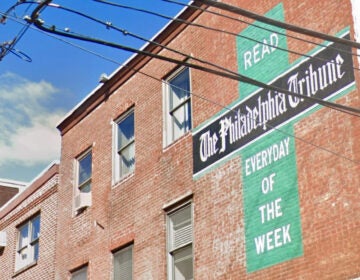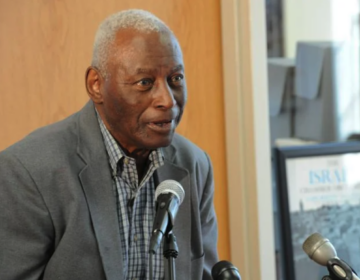A good deed goes through ‘Black enough’ blender
Philanthropist Robert F. Smith spread a balm over the wounds that accumulate as a result of the day-to-day indignities that go hand-in-hand with being Black in America.
This story originally appeared on The Philadelphia Tribune.
In the span of a few minutes, a little over a week ago, philanthropist Robert F. Smith orchestrated the kind of move that spreads a balm over the wounds that accumulate as a result of the day-to-day indignities that go hand-in-hand with being Black in America.
The billionaire tech mogul’s promise to pay off the tuition loans — in the neighborhood of $40 million — of all the young men in Morehouse College’s Class of 2019. His generosity elicited a collective “thank you, Jesus” from African Americans fatigued by the never-ending stories about gun violence, racism, poverty, failing schools, wealth gaps and any other societal maladies that seem to attach themselves to Black folks more readily than any other group of Americans.
Sadly, I also knew that there would shortly emerge — from within the Black community — the imbecilic discussion over the authenticity of Smith’s Blackness: Is he Black enough?
Former President Barack Obama knows all about this. For this stupidity — which in polling my non-Black friends doesn’t occur among any other ethnic groups — found its way to the mainstream repeatedly during his two-terms in the White House.
Those looking to attach this ignorance to Smith have done so by assailing him for marrying former Playboy Model Hope Dworaczyk, who is white, in 2015. To some, this makes Smith, if there is a such a thing, “un-woke.”
What I’ve also noticed more often than not in this discussion is the failure to mention his first wife, Jamaican-born Suzanne McFayden. The two were married for 22 years and had three children during that time.
To be clear — and if you are unaware — there is no litmus test for who is and who isn’t Black enough. Smith has told the story about being stopped for “driving while Black” to and from the airport in his hometown of Austin, Texas, on multiple occasions. And trust me, the officers who have stopped him never once gave any consideration to the color of his wife as criteria for pulling Smith over.
A fairer barometer of what passes for authentic Blackness would be to place Smith side by side with music mogul Dr. Dre, the iconic founder of rap group N.W.A. in the 1980s.
For no other reason than the cultural impact of his musical career, Black people will never question Dr. Dre’s Blackness, which sets the bar much lower for him than it does for the Obamas and Smiths of the world.
In 2013, Dr. Dre, worth hundreds of millions, and music producer Jimmy Iovine donated $70 million to the University of Southern California to fund a four-year program that blends liberal arts, graphic and product design, business and technology.
USC didn’t really need his chump change, especially when its endowment stood at $5.5 billion in 2018. A coffer that, by the way, is larger than the endowments of all historically Black colleges and universities combined.
Far be it for me to suggest to any billionaire how best to do his or her philanthropy, but one can’t help but wonder what a similar gift might do for cash-starved, on-the-brink of extinction Cheyney University, the nation’s oldest HBCU?
And I’ll just venture a guess that the percentage of students taking loans to attend Cheyney is probably much higher than those at USC. Imagine how many loans Dr. Dre could have wiped out at Cheyney or any of a number of struggling HBCUs with such a prodigious contribution?
A 2018 report on Black male athletes and racial inequalities showed that just 2.2 % of USC undergrads were African-American men. That compares with the 56% of its football and basketball programs, which generate revenues in the millions annually. One wonders how aware Dr. Dre may have been of this long-standing inequality before he gifted USC with his millions?
The irony should be lost on no one. On the one hand, the rapper, who made millions selling his music to Black people, never considered them when it was time to give something back. On the other hand, the Black businessman, vilified by some African Americans for marrying a white woman, gave back to the Black men of Morehouse in unapologetic fashion.
Whatever Ahmad Smith chooses, gone are the shackles of loans that weigh disproportionately upon young Black students, who on average owe $7,400 more than than their white peers upon graduation.
I’m optimistic that Ahmad Smith is part of generation that doesn’t view being Black in the same way that more myopic generations that have preceded him do.
“Mr. Smith is what I aspire to become — A Black man who cares about the future of his people,” Smith told me last week. “That’s authentic Blackness.”
That it is.
WHYY is your source for fact-based, in-depth journalism and information. As a nonprofit organization, we rely on financial support from readers like you. Please give today.




